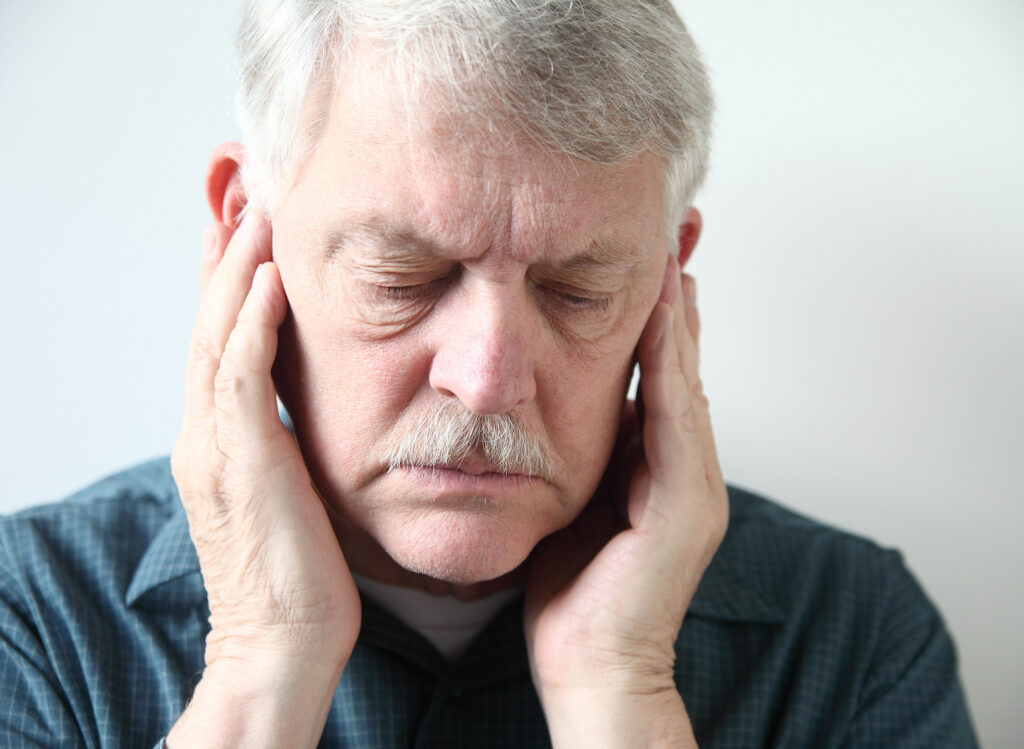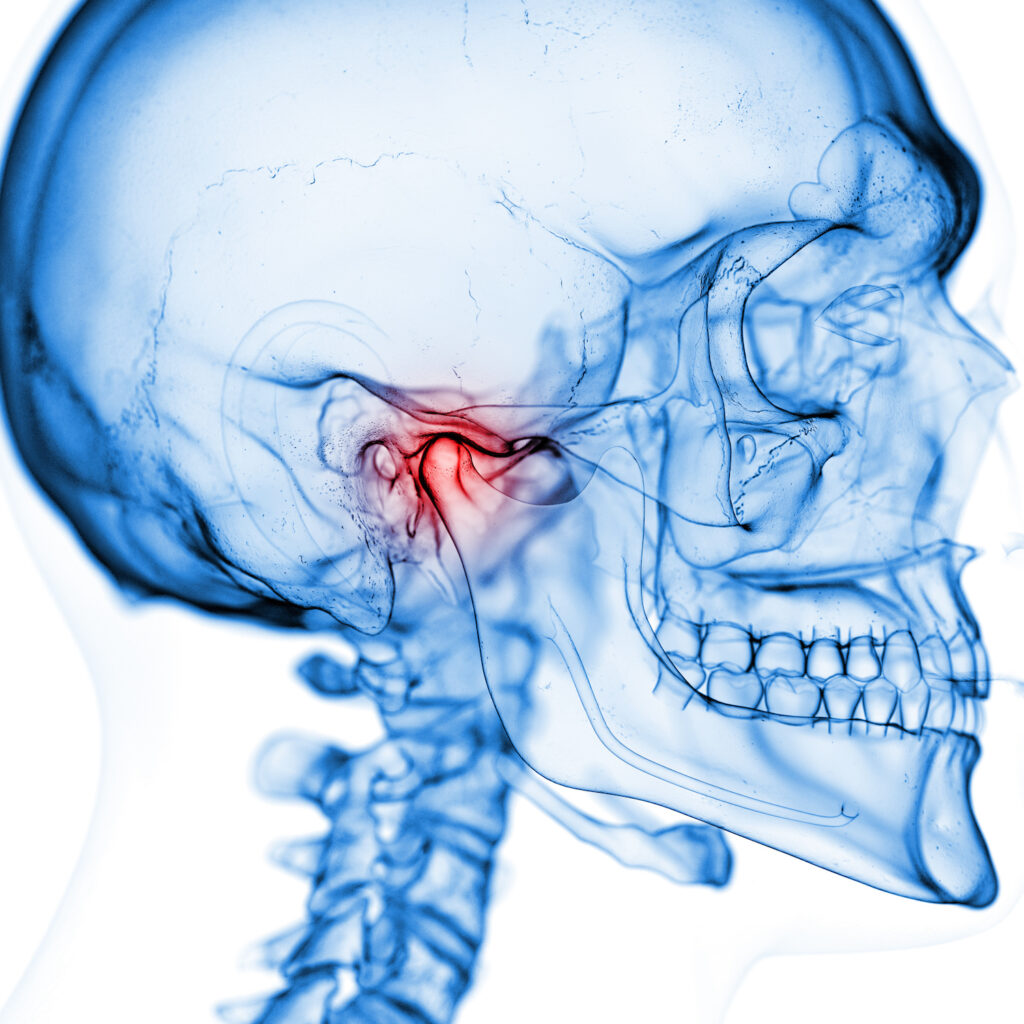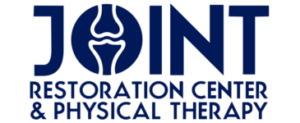- Are You Searching for TMJ Pain Relief & Treatment Near You?
- Do you suffer from headaches, grinding of your teeth, clicking of your jaw or even neck or ear pain?
You’re not alone! These can all be signs of a condition known as Temporomandibular Joint Disorder (TMJ).

This is a disorder of the jaw muscles and nerves caused by injury to the TMJ (the temporomandibular joint), which is the joint between your jaw and skull. A physical therapist or nurse practitioner can take a look at your symptoms and help to diagnose if this is what has been causing your discomfort!
If you’re living with this condition, don’t fret! The skilled physical therapists and nurse practitioners at Joint Restoration Center are here to help you find true pain relief once and for all. Call our clinic today and cut the cord tying you to your pain!
Common causes of TMJ disorder
According to ChoosePT, TMJ disorder is so common that it currently affects more than 10 million people in the United States. That’s a lot! There are several reasons you may be experiencing symptoms of temporomandibular joint disorder.
Multiple factors contribute to the muscle tightness and dysfunction that characterize this condition. Most often, poor posture and neck alignment change the pull of the muscles that make your jaw move. This causes painful grinding and irritation of the temporomandibular joint.
Other causes may include:
- Poor alignment of or trauma to the teeth or jaw (malocclusion)
- Clenching of the jaw (bruxism)
- Lockjaw (trismus)
- Teeth grinding
- Poor posture
- Stress
- Arthritis or other inflammatory musculoskeletal disorders
- Excessive gum chewing
When you see a physical therapist for pain relief for TMJ disorder, they may ask you questions about your daily life including stressors and chronic conditions that could be causing your pain.
Symptoms of TMJ

There are several ways to know if you may be dealing with TMJ, although the best way to find out for sure is to visit with a Joint Restoration Center physical therapist or nurse practitioner!
When a person has TMJ disorder, the injured joint leads to pain with chewing, clicking, and popping of the jaw; swelling on the sides of the face; neck pain; nerve inflammation; headaches; tooth grinding; and sometimes dislocation of the temporomandibular joint.
The bad news is that this condition can make everyday things such as talking and eating pretty uncomfortable. The good news is that a lot can be done to help TMJ disorder, first starting with a thorough evaluation of your problem with our expert physical therapists and practitioners!
How can physical therapy help with TMJ?
Dentists and orthodontists aren’t the only ones who can treat TMJ disorder. Physical therapists can as well. At your first appointment with Joint Restoration Center, a thorough examination of your neck, shoulders, and thoracic spine will be performed to determine whether those structures are causing your symptoms.
Once the root cause of your problem has been discovered, a comprehensive plan can be developed to quickly relieve your pain and restore natural movement to your temporomandibular joint. Furthermore, our physical therapists and nurse practitioners will teach you techniques for regaining normal jaw movement for long-lasting results.
The focus of physical therapy and other supporting treatments for TMJ is relaxation, stretching, and releasing tight muscles and scar tissue. In most cases, physical therapy combined with supporting treatments such as trigger point injections can resolve TMJ and prevent the need for surgery.
However, in cases where surgery is absolutely necessary, physical therapy is a vital part of the recovery process, as it helps minimize scar tissue formation, decrease muscle tightness, and allow for a complete recovery.
Your recovery plan may involve a range of procedures and modalities, such as jaw exercises, soft tissue massage, joint mobilization, myofascial methods, electrical stimulation, trigger point injections, and ultrasound. Your PT will also work with you on improving your posture as well since this can contribute to TMJ-related pain.
Give us a call today
If you’re living with jaw pain and discomfort, it’s worth calling Joint Restoration Center in Tulsa, OK, to set up an appointment to have your condition assessed. On the chance that TMJ disorder is the culprit, our physical therapists and nurse practitioners will do everything in their power to give you the pain relief you deserve, and help you to experience less discomfort when you’re talking, chewing, yawning, etc.
What are you waiting for? Relief is a call away, so reach out today to set up an appointment!

